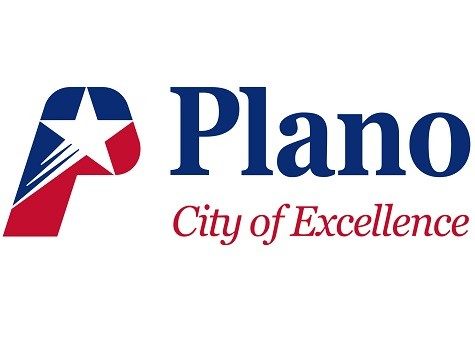AUSTIN, Texas — After a contentious debate Monday evening, the City of Plano, Texas passed an “Equal Rights Policy” ordinance with a narrow 5-4 vote, “prohibiting discrimination in places of public accommodation, employment practices, housing transactions and city contracting practices,” but which critics claim infringes on religious liberty and may allow men to use women’s bathrooms.
Plano passed an ordinance in 1989 “to afford equal opportunities of life, liberty and the pursuit of happiness to all individuals regardless of race, color, religion, sex, age, national origin and handicapped status,” and this new ordinance revised and expanded that policy. According to the City Council Agenda Item, the new ordinance would result in the following changes: 1) change the name of the ordinance to “Equal Rights Policy;” 2) “expand the City’s policy to afford equal human rights to individuals regardless of U.S. military/veteran status, genetic information, sexual orientation and gender identity to the other protected characteristics;” 3) “revise the outdated term ‘handicapped status’ to ‘disability status'” and 4) “prohibit discrimination in places of public accommodation, employment practices, housing transactions and city contracting practices.”
Several Collin County Republican lawmakers sent a letter to the Plano Mayor and City Council opposing the ordinance, including State Senator and Attorney General-elect Ken Paxton (R-McKinney), State Representatives Pat Fallon (R-Grand Prairie), Jodie Laubenberg (R-Parker), Jeff Leach (R-Plano), State Representative-elect Matt Shaheen (R-Plano), Collin County Judge Keith Self, and Collin County Commissioners Susan Fletcher, Cheryl Williams, and Duncan Webb. The letter requested that the city postpone the vote, arguing that there had not been adequate time for the public to weigh in on the proposed changes to the city ordinances:
“We do not believe there has been adequate time for the public and community leaders to be a part of the discussion of such a major, wide sweeping change in law and policy for Plano. As husbands and wives with children, we have concerns that your sexual orientation and transgender ordinance may place women and children at risk and does not consider the moral or religious beliefs of Plano citizens or vendors who do business with the city.”
The lawmakers’ letter included a list of nine reasons they opposed the ordinance, including infringements on religious freedoms and First Amendment rights, concerns about exposing Plano businesses to civil lawsuits and burdens not faced by other businesses in Collin and Denton Counties, the “subjective” definition given to “gender identity” protections that was not in Texas law, and the likelihood that the ordinance would “cause division in our community” and entangle the city in expensive litigation.
Plano-based Liberty Institute, a Christian legal organization, was another vocal opponent to the ordinance, sending their own letter to the Mayor and City Council. Jeffrey Mateer, General Counsel for Liberty Institute, wrote that the ordinance would be a violation of the religious freedoms guaranteed under the United States and Texas Constitutions and Texas law:
“The Proposed Ordinance is vaguely worded and compels private businesses and employees to violate their sincerely-held religious beliefs, in contravention of federal and state laws protecting persons of faith. In effect, the Proposed Ordinance makes it a crime to do business in the City of Plano while maintaining Christian, Jewish, Muslim, or other traditional religious views of marriage, sexuality, and gender identity. As drafted, the Proposed Ordinance prohibits persons with traditional religious views from participating in City programs that feed the hungry, shelter the homeless, protect the battered, or otherwise working within the City’s myriad charitable programs.”
Mateer’s letter concluded with a vow that if the proposed ordinance was enacted, “Liberty Institute will be forced to take legal action against the city to fight such a blatant attack on the religious liberty rights of the residents of the City of Plano.”
The ordinance does include several sections titled “Exclusions,” that purport to carve out protections for privacy, religious organizations, etc. but the ordinance’s opponents argue that these sections offer inadequate provisions, are too vague, or contradict other sections. For example, Section 2-11(C)(3), which provides that the ordinance does not apply to non-profit organizations also has an exclusion to that exclusion: Section 2-11(G)(1), which governs city contracting. Similarly, Section 2-11(D)(3) provides that “[i]t shall not be unlawful to deny the opposite sex access to facilities inside a public accommodation segregated on the basis of sex for privacy such as restrooms, shower facilities, locker rooms, dressing rooms or any similar facility,” but does not define how that section is to be implemented with regards to the ordinance’s definitions for sex and “gender identity.”
According to Jonathan Saenz, the President of Texas Values, a spinoff group from Liberty Institute, 1,500 emails were sent to the Plano City Council in opposition to the ordinance. Saenz attended the City Council meeting in person and tweeted that only four or five testified in favor of the ordinance and at least thirty people testified against it, including several local small business owners, at least one of whom had gay relatives and employees. After the ordinance passed, Saenz tweeted, “Expect to see @advanceliberty lawsuit filed soon on this issue.”
Follow Sarah Rumpf on Twitter @rumpfshaker

COMMENTS
Please let us know if you're having issues with commenting.